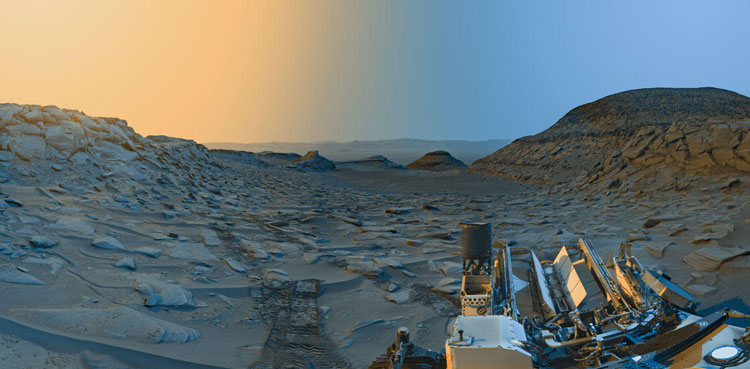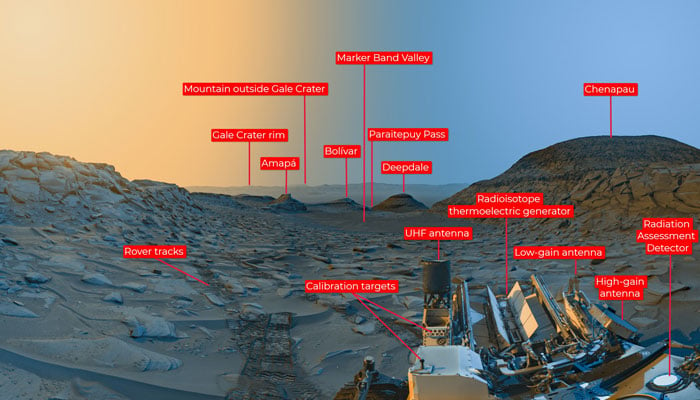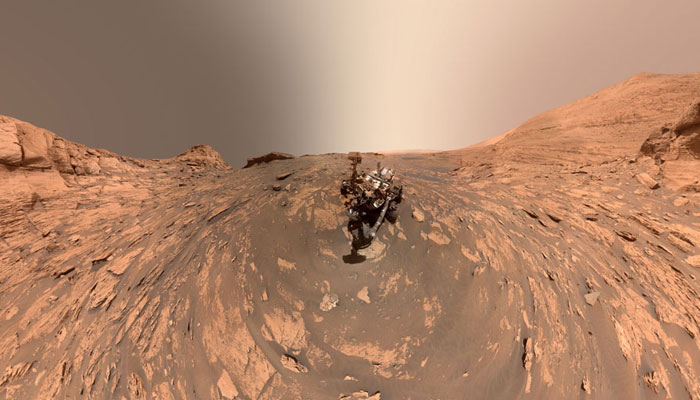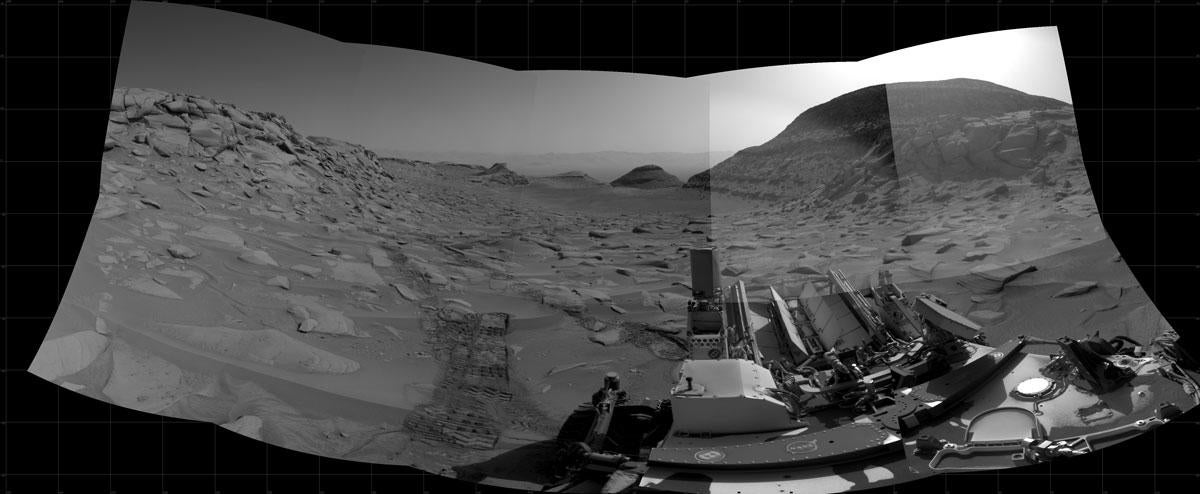NASAs Curiosity rover pictures show how mornings evenings on Mars look like

NASA’s Curiosity rover recently captured stunning photos of the Martian skies and landscape that offer researchers a glimpse at what Mars looks like at different times of day.
Curiosity rover has been on Martian soil since 2012. It captured pictures on April 8, with black and white navigation cameras, according to a Nasa press release, capturing photos in the morning and evening time.
The pictures were then turned into panoramic images with colours added, in what Nasa termed a postcard, emphasising the difference between the two times the photos were taken.

The postcard showed several landmarks from Mars, including “Marker Band Valley,” where Curiosity once found evidence that there may have been a lake on the site, and two hills named Bolivar and Deepdale.
As the picture was captured on a clear day, Curiosity’s image also reveals a mountain 54 miles from the edge of the crater.
The photo also shows an SUV-sized Curiosity itself and captures the rover’s tracks across the dusty Martian landscape.

Even more impressive than landscape photography is what it teaches researchers about how the sun and shadows move on Mars.
“Anyone who’s been to a national park knows the scene looks different in the morning than it does in the afternoon,” said Curiosity engineer Doug Ellison of Nasa’s Jet Propulsion Laboratory.
Images without the added color remain striking: The black-and-white photos each show the same scene, but with deepening shadows on each side. In the morning images, the shadows are on the left.

Nasa also said that it was winter at the time the rover took these photos. During this time of the year on Mars, shadows are deeper and darker because dust levels in the Martian atmosphere are at their lowest.
“Mars’ shadows get sharper and deeper when there’s low dust and softer when there’s lots of dust,” Ellison said.
from Science and Technology News - Latest science and technology news https://ift.tt/X2wYQ3H